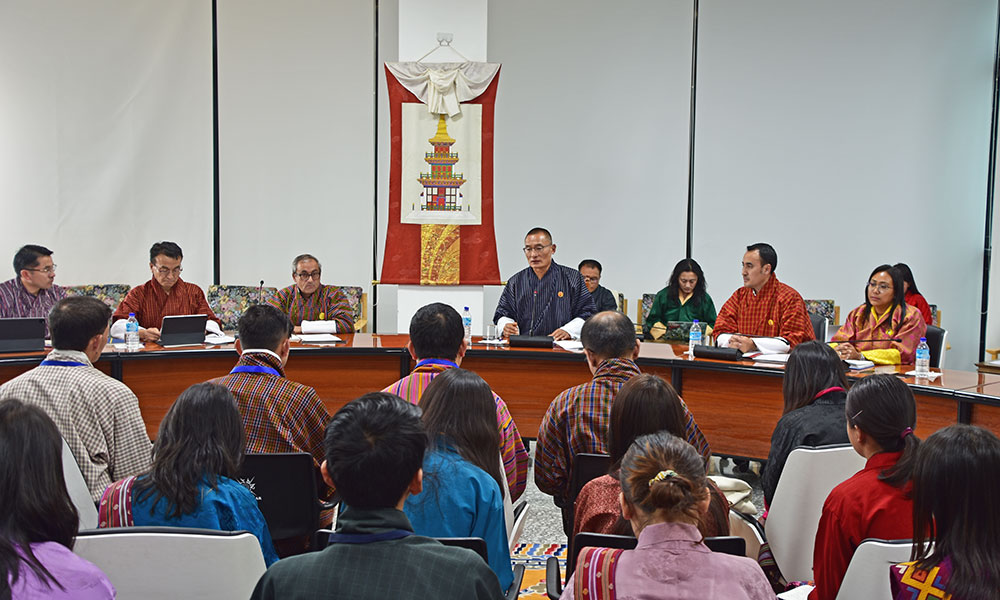KP Sharma
Amidst widespread discussions about changes in Australian emigration rules, the government has announced plans to establish a special office to assist Bhutanese civil servants who have left their professions previously but wish to return.
The Australian Government recently announced changes to its Temporary Graduate visa programmes as part of its migration strategy.
These changes are expected to come into effect from July 1, 2024 but needs the legislative approval to become a law.
One key change is the reduction of the maximum eligible age for applicants in the post-vocational education work stream and post-higher education work stream to 35 years.
Although the age bar was widely known before, the actual implementation date was recently announced.
This means that international students, except those from Hong Kong and British National Overseas passport holders capped at 50, will face issues in getting the temporary visas.
The changes in immigration rules have sparked concerns among individuals in Australia and those planning to migrate, particularly those aged between 34 and 35, who may face visa refusals and potential repatriation.
In such an unforeseen scenario, the proposed government office aims to facilitate the return of Bhutanese citizens by providing information on job opportunities and assisting with placement.
Lyonchhen Tshering Tobgay announced during a recent Meet-the-Press session yesterday that discussions are ongoing within the Cabinet regarding the establishment of this office.
Lyonchhen said that when people express willingness to return, the government would be please to accept them.
He shared that there were many success stories of people earning and leading fulfilling lives abroad, particularly after pursuing studies and acquiring qualifications.
Lyonchhen expressed concern for Bhutanese citizens facing job-related challenges abroad, stating that their and encouraged those experiencing such issues to consider returning home.
Lyonchhen assured that the government was committed to facilitating the return of civil servants, recognising their valuable experience. “If Bhutanese working abroad want to come back, we want them to have access to a special office to welcome them.”
He said: “Those abroad who wish to return can reach out to the office from anywhere.”
The office’s role will be to provide returnees with essential information and assistance in preparing for their return.
Upon their arrival in the country, the office will actively seek out potential opportunities based on their interests and qualifications.
Regarding reappointing individuals to their previous positions, Lyonchhen said that the government would verify if the positions are available. If the positions are open, the government will support the returnees’ entry into those roles, he added.
Lyonchhen also touched on the various service rules governed by the Royal Civil Service Commission (RCSC), stating that the government would adhere to the procedures.
He said that if any challenges arise during the recruitment process involving the RCSC, the government would promptly engage with the commission to address and resolve issues, ensuring a smoother transition for the returning individuals.
Lyonchhen said that it was important not to limit the search to previous positions alone and encouraged exploring various opportunities, including roles in the private sector, which offer a broad range of possibilities.
This approach, he said, would ensure that returning individuals have access to diverse career paths and can contribute to different sectors of the economy.
The proprietor of Education Pro, Tandin Dorji, advised Bhutanese individuals not to panic about the upcoming changes, as the rules have not been finalised yet.
Even if the rules are implemented, he added that it would only come into effect from July 1 only.
He was that there was enough to plan accordingly and that it would not necessarily hinder their aspirations, as there are alternative pathways to pursue their career.
He highlighted that the rule changes wouldn’t impact younger individuals, as they would typically complete their degrees before reaching the age limit of 35, making them eligible for temporary visas.
However, for those facing visa rejections, he recommended considering options such as applying for a temporary skill shortage visa or appealing for alternative visa types.
He stressed the importance of selecting skill-based courses like engineering, IT, nursing, and other professions with high demand in the market.
This strategic choice, he said, would enhance their chances of securing temporary visas and continuing their stay abroad.


